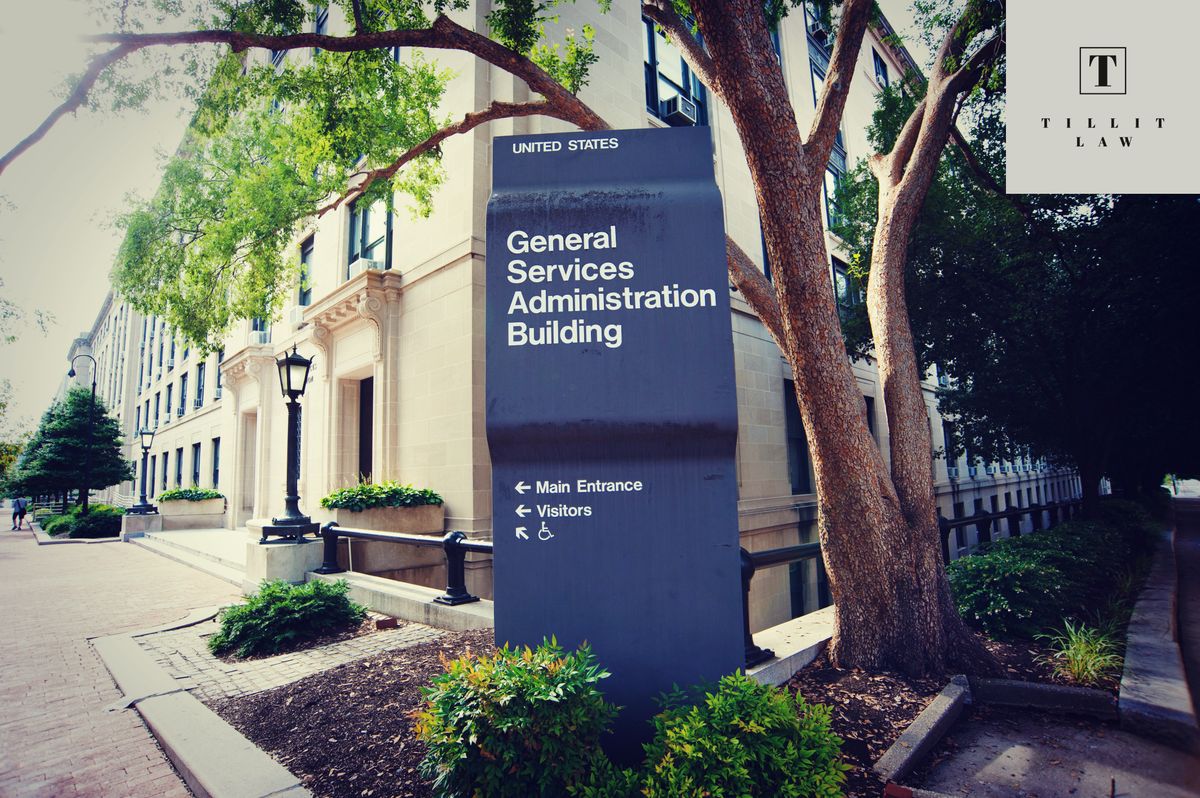*** REGULATORY UPDATE: On November 12, 2024, the General Services Administration, Department of Defense, and National Aeronautics and Space Administration issued an interim rule, which went into effect the same day. The interim rule amended the Federal Acquisition Regulation to clarify System of Award Management (SAM) pre-award registration requirements. The rule revises the solicitation provision at FAR 52.204-7 to clarify that while an offeror must be registered in SAM at the time of offer submission and at the time of contract award, the offeror need not be registered in SAM at every moment in between those two points. Accordingly, parts of the Government Accountability Office and the Court of Federal Claims decisions, including the decision referenced in this article, that levy a requirement for offerors to maintain a continuous, uninterrupted, SAM registration during the entirety of the pre-award process are no longer applicable.***
To be eligible for federal contract awards, contractors are required to register and maintain their System for Award Management (SAM) registration within the integrated award environment (IAE) managed by the General Services Administration (GSA) Federal Acquisition Service (FAS). The Federal Acquisition Regulation (FAR) requires federal contractors to initially register in SAM before they receive an award and annually renew their registration thereafter. Additionally, FAR § 4.1105 instructs contracting officers (CO) to insert the provision at FAR 52.204-7 in all solicitations except where certain limited exceptions apply. The provision at FAR 52.204-7 provides in pertinent part that “an offeror is required to be registered in SAM when submitting an offer or quotation, and shall continue to be registered until time of award, during performance, and through final payment of any contract, basic agreement, basic ordering agreement, or blanket purchasing agreement resulting from this solicitation.” Occasionally, a situation may arise where a prospective contractor’s SAM registration lapses between the time it submits a proposal and when it receives a contract award in violation of the provision at FAR 52.204-7. In such situations, the resulting award may be protested for violating the terms of the solicitation, provided the solicitation contains the provision at FAR 52.204-7.
In B-422275, the Government Accountability Office (GAO) sustained such a bid protest on April 1, 2024, challenging an award made on a lowest-price technically acceptable (LPTA) basis to a contractor whose SAM registration had briefly lapsed in the period between offer submission and the eventual award. The solicitation contained the provision at FAR 52.204-7 and was issued by the Navy for custodial services at the Naval Surface Warfare Center in Bethesda, Maryland. Notably, as part of the evaluation criteria, the solicitation advised offerors that compliance with all material aspects of the solicitation, including regulatory requirements, was mandatory for an offeror to be eligible for an award. The solicitation period closed on September 15, 2023, and the Navy received six offers, with the awardee proposing the lowest price and the protestor proposing the second lowest price to perform the custodial services. Upon completing a preliminary evaluation of proposals received, the Navy noted that the awardee’s SAM registration was “Active” through December 11, 2023. Navy later completed its evaluation of proposals on December 19, 2023, and again noted that the awardee’s SAM registration status was “Active” as of December 12, 2023. The Navy awarded the contract to the awardee on December 26, 2023, for submitting the lowest-priced technically acceptable proposal.
Subsequently, the protestor filed a protest at the GAO alleging that the awardee’s SAM registration had “lapsed” for a period between December 11, 2023, and December 12, 2023, in violation of the solicitation’s requirements, which incorporated FAR 52.204-7. According to the protestor, to be eligible for an award resulting from solicitations incorporating FAR 52.204-7, prospective contractors had to be continuously registered in SAM from the “time of proposal submission until the contract award” or the “evaluation period.” In response, the Navy argued that FAR 52.204-7 did not impose a continuous registration requirement during the evaluation period and that the awardee’s SAM registration had not “lapsed” because the awardee had submitted its registration renewal information before December 11, 2023 – the date on which the awardee’s SAM registration was set to expire. The GAO requested clarification from the GSA. According to the GSA, the awardee submitted its SAM registration on Friday, December 8, 2023. On Monday, December 11, 2023, GSA sent the awardee’s SAM registration to the Internal Revenue Service (IRS) per its established procedures for validating the awardee’s Taxpayer Identification Number (TIN). The IRS returned the awardee’s SAM registration to the GSA after the TIN validation on December 12, 2023. On the same day, the GSA sent the SAM registration to the Defense Logistics Agency (DLA) to verify the eventual awardee’s Commercial and Government Entity (CAGE) code. Upon returning from the DLA, the registration was processed and activated by SAM on the morning of December 12, 2023. Meanwhile, the awardee’s SAM registration expired at 9:34 AM on December 11, 2023. Therefore, the awardee’s SAM registration had lapsed and was inactive between the morning of December 11, 2023, and the morning of December 12, 2023.
The GAO began its discussion by conducting a plain meaning analysis to interpret the provision at FAR 52.204-7, noting that the provision plainly and unambiguously required offerors to maintain their SAM registrations during the evaluation period. The GAO determined that the plain meaning of the phrase “shall continue to be registered until time of award” in FAR 52.204-7 mandated that an offeror’s registration must continue during the evaluation period without lapsing until an award is made. The GAO further reasoned that if it were to adopt the Navy’s position and interpreted FAR 52.204-7 as not requiring continuous registration throughout the evaluation period, it would render the phrase “shall continue to be registered until time of award” as superfluous. In sustaining the protest, the GAO also refused to be persuaded by the Navy’s argument that the regulatory history of FAR 52.204-7 indicated that the pertinent phrase did not require offerors to maintain their SAM registration without lapses during the evaluation period. The GAO reminded the Navy that regulatory history is only relied upon as an interpretive aid when the meaning of the regulation is ambiguous. Here, the Navy failed to demonstrate ambiguity in the text of FAR 52.204-7 as the provision's plain meaning unambiguously required offerors to continually maintain their SAM registrations during the evaluation period. Finally, the GAO was similarly unpersuaded by the Navy’s argument that the awardee’s SAM registration had not lapsed because it had submitted its registration renewal before the expiration of its SAM registration. The GAO clarified that since a successful SAM registration process required actions from both the contractor and the government, the contractor’s action of submitting the SAM registration was not, by itself, sufficient to renew a SAM registration. Therefore, in sustaining the protest, the GAO recommended that the Navy terminate the awarded contract for the government’s convenience and make a new selection decision.
The GAO’s decision in B-422275 indicates that even if an offeror’s SAM registration is renewed minutes after its expiration, if that lapse is in the evaluation period of a solicitation, that is, between the time the bid or proposal is submitted and until the award is made, protest adjudicative forums will consider that offeror ineligible for an award provided the solicitation contains the provision at FAR 52.204-7. Thus, offerors should carefully monitor their SAM registration status to avoid any potential complications caused by inadvertent lapses in registration during the evaluation period, should they be selected for an award. Additionally, offerors should also monitor the SAM registration status of any known competitors, as the protestor clearly did here. Any lapses in a known competitor’s registration could form a potential basis for a bid protest, especially if the known competitor’s SAM registration is set to expire during the evaluation period. Notably, since the requirement of continuous SAM registration is imposed by a FAR provision that is typically mandatory, protests based on a lapse in SAM registration during the evaluation period essentially allege non-compliance with a required solicitation provision. Such a challenge posed on the basis of the awardee’s non-compliance with a mandatory solicitation provision removes any discretion that the issuing agency may otherwise have in making responsibility determinations. Therefore, while the SAM registration renewal process is typically straightforward, contractors should still renew their SAM registration well in advance of its date of expiration, especially if they anticipate being considered for a contract award around the time their registration is set to expire.
This Bid Protests Insight provides a general summary of the applicable law in the practice area and does not constitute legal advice. Contractors wishing to learn more are encouraged to consult the TILLIT LAW PLLC Client Portal or Contact Us to determine how the law would apply in a specific situation.





